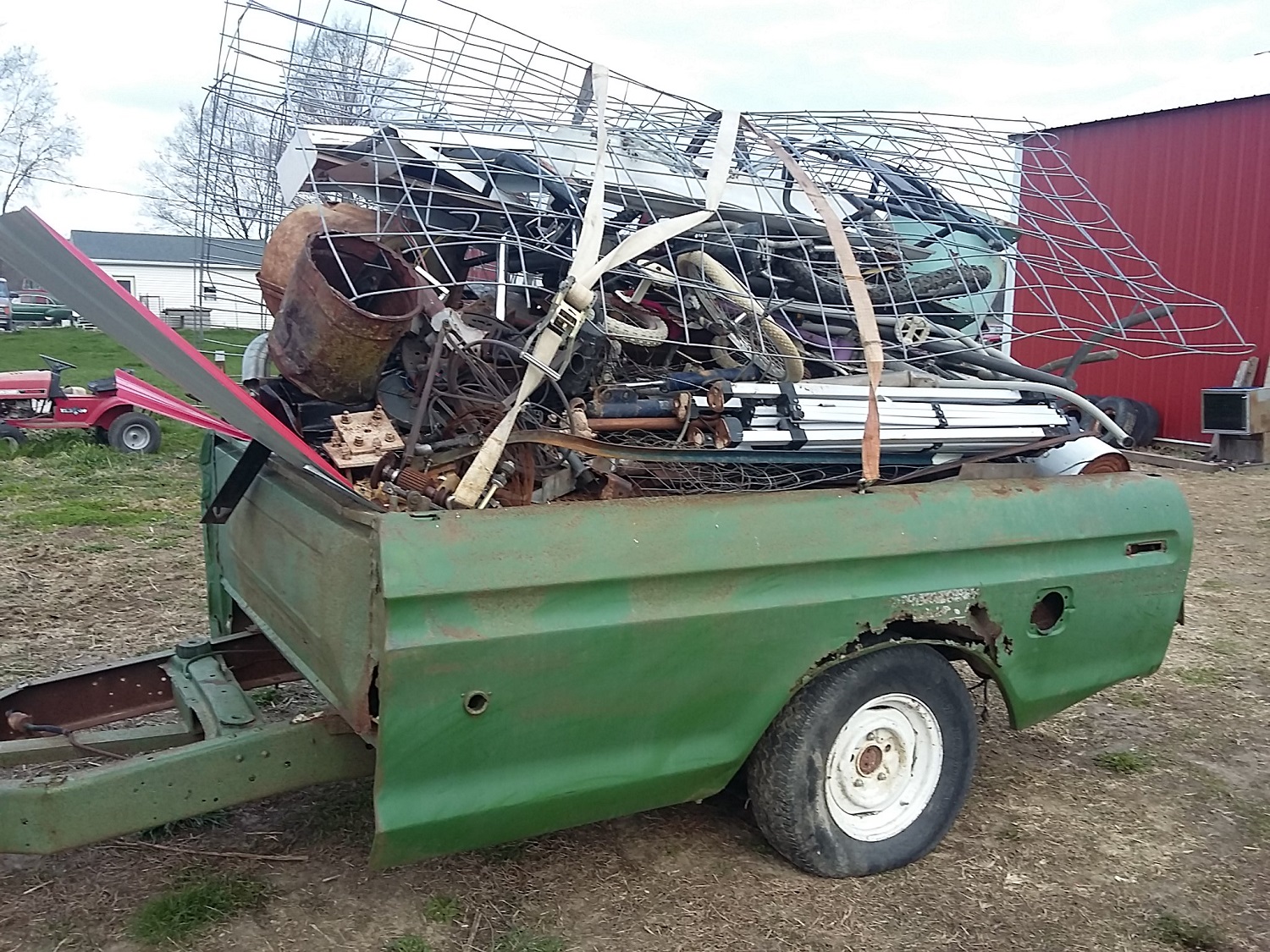Let two statistics released by the Federal Motor Carrier Safety Administration (FMCSA) percolate in your mind:
- Unsecured loads cause about 51,000 accidents each year in the U.S., resulting in about 10,000 injuries.
- A 20-pound object at 55 mph has a force of 1,000 pounds on impact.
Trailer safety is everybody’s responsibility—and recyclers lead the way.
“We all have a moral responsibility to ensure that all our equipment, including trailers, is in top operating condition,” states Jerry Sjogren, ISRI senior director of safety. “We are responsible to ensure that all components are working properly and meet the required safety standards. That all vehicles are properly coupled or connected; all loads are securely fastened; and that our drivers and other responsible team members are properly trained and taking steps to verify safety through pre-trip, post-trip, and other inspection processes.”
Toby Shine, president of Sioux Falls, S.D.-based metal recycler TJN Enterprises, says his workers follow ISRI’s recommended safety practices. “We secure our loads, and we really emphasize with each driver that they are responsible for the safety of every truck and trailer that leaves our lots,” he says.
Kevin Kopsas, TJN operations manager, says the company has weekly safety messages or “Toolbox Talks” with workers; drivers have a monthly talk geared toward their issues. “The biggest thing is conducting those pre- and post-trip checks,” he says. TJN operates about 30 trucks and trailers in its fleet, which services 10 recycling locations.
Two June events—Trailer Safety Week and Secure Your Load Day—highlight the importance of trailer safety for commercial and personal loads.
Secure Your Load Day is every June 6. Forty-eight states and Canada recognize Secure Your Load Day and educate the public on the importance of load securement. Each state observes the day in its own way, and many counties and cities also have educational campaigns and enforcement patrols.
Washington state resident Robin Abel started the Secure Your Load movement in 2004 after an unsecured load blinded and nearly killed her daughter, who was struck by a piece of particle board that flew out of a trailer ahead of her vehicle on Interstate 405 in California. “Unsecured loads and road debris are not freak accidents, but frequent incidents, and most are preventable with just a few minutes of time and a few dollars in equipment,” Abel says.
Towing involves the interaction of several components: the driver, tow vehicle, hitch, and trailer. For operators of light- and medium-duty trailers under 26,000 lbs. gross vehicle weight rating, the National Association of Trailer Manufacturers (NATM) has made it easier for consumers, dealers, and manufacturers to ensure compliance with safety standards through its Compliance Verification Program.
NATM’s Trailer Safety Week is an annual nationwide campaign aimed at increasing awareness of the importance of being committed to trailer safety; educating end-users about proper trailer maintenance and usage; and creating a stronger partnership and alliance between stakeholders including trailer dealers, manufacturers, and end-users.
For recyclers who want to get involved or share safety tips with sellers or vendors who visit their facilities, Savana Morrison, NATM marketing director, recommends signing on as a Trailer Safety Week Ally. “This gives you access to our Trailer Safety Week communications kit that has everything from blog posts to pre-crafted social media posts and graphics,” she says.
ISRI’s safety team regularly reviews best practices for vehicle safety. “We should operate our fleets ‘Safely or Not at All,’” Sjogren says. Members can share their stories about fleet safety at the spring ISRI Safety and Environmental Conference (ISEC), which is June 14-16 in St. Louis.
Photo courtesy of thecarsavior on Flickr. Caption: This could be coming to your facility!
Additional Resources













